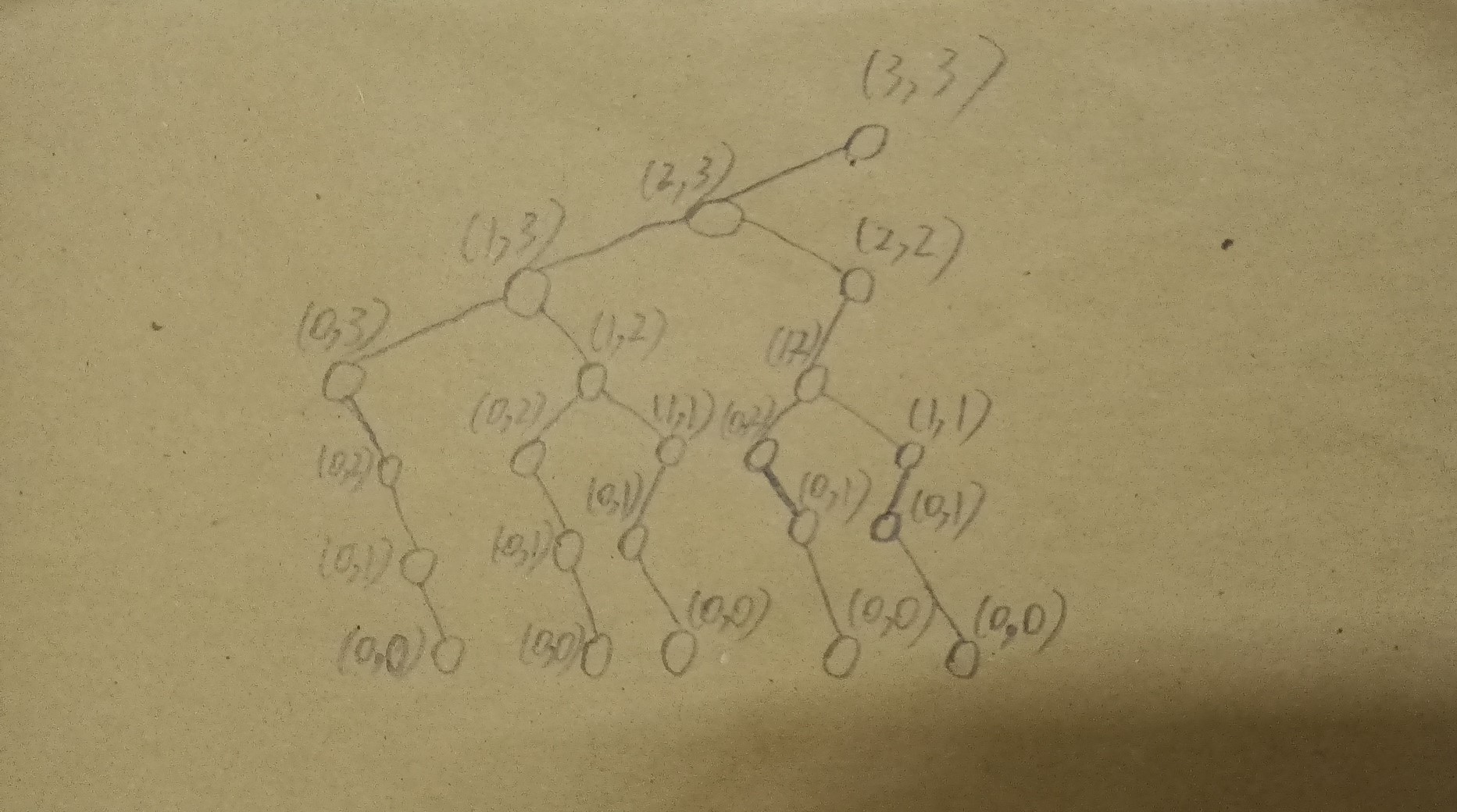22. 括号生成
难度中等
数字 n 代表生成括号的对数,请你设计一个函数,用于能够生成所有可能的并且 有效的 括号组合。
示例:
输入:n = 3
输出:[
"((()))",
"(()())",
"(())()",
"()(())",
"()()()"
]
思路:可以用树将示例模拟一遍,如下图(有点丑,不用吐槽,我承认,傲娇脸),我们可以通过递归进行,向左是添加左括号,向右添加右括号,为了是括号匹配,有括号的数量不能多于左括号的数量,还有就是输入的括号可以当作是一个字符串,所以我们要记得在最后加上'�'。

代码如下:
1 /** 2 * Note: The returned array must be malloced, assume caller calls free(). 3 */ 4 void dfs(char* temp,int index,int left,int right,char** result,int* count,int n) 5 { 6 if(left==0&&right==0){ 7 result[(*count)]=(char*)malloc((2*n+1)*sizeof(char)); 8 strcpy(result[(*count)++],temp); 9 return ; 10 } 11 temp[index+1]='�'; 12 if(left>0){ 13 temp[index]='('; 14 dfs(temp,index+1,left-1,right,result,count,n); 15 } 16 if(right>left){ 17 temp[index]=')'; 18 dfs(temp,index+1,left,right-1,result,count,n); 19 } 20 } 21 22 23 char ** generateParenthesis(int n, int* returnSize){ 24 char** result; 25 char* temp; 26 result=(char **)malloc(2000*sizeof(char*)); 27 temp=(char *)malloc((2*n+1)*sizeof(char)); 28 int left=n,right=n,index=0,count=0; 29 dfs(temp,index,left,right,result,&count,n); 30 *returnSize=count; 31 return result; 32 }